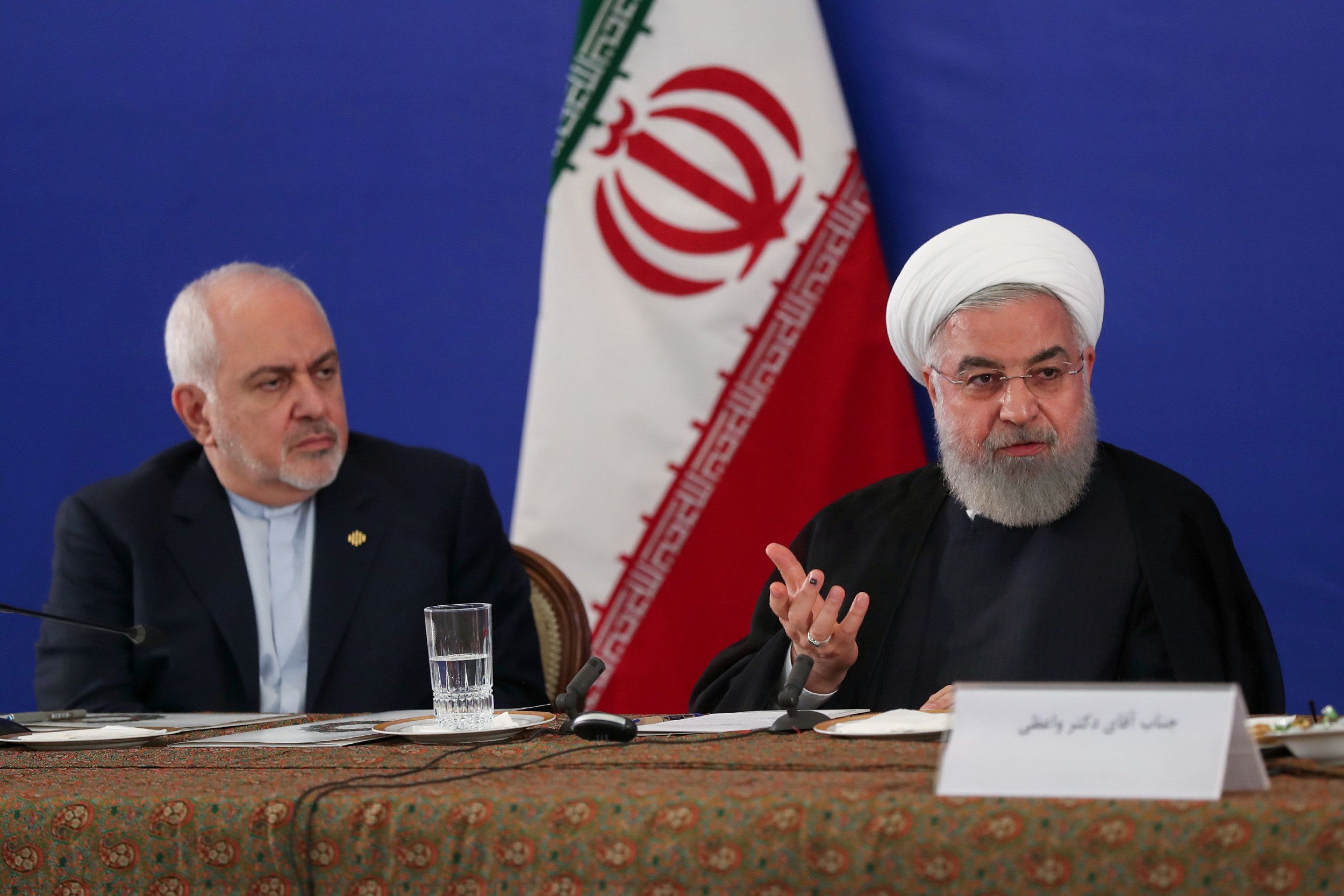September 03, 2019
Fresh tensions with Israel. Threats to accelerate the pursuit of nuclear weapons. A surprise showing at the G7 last week in France. Iran is in the global limelight again, and the question of whether the 2015 nuclear deal can survive is coming to a head.
Here are three big Iran stories we're following in the coming days:
Iran's nuclear ultimatum put to the test — Ever since the US walked out of the 2015 Iran deal and slapped crippling sanctions on that country, Iran has pressured the Europeans (who are still in the deal) with an ultimatum: unless you provide us with economic help, we'll ditch the deal and pursue nuclear weapons again. This week, Iranian President Hassan Rouhani raised the stakes, warning that Tehran could accelerate its enrichment of uranium to 20 percent fissile purity by Friday unless the Europeans come to the rescue. Twenty percent is a major milestone on the way to reaching weapons-grade enrichment. For perspective, the nuclear deal caps enrichment at just 3.67 percent.
Rising regional tensions — For months, Iran has been at the center of a string of regional flare ups. In response to US sanctions, Iran has allegedly attacked international oil tankers in the Strait of Hormuz, a major oil chokepoint, and has engaged in maritime brinkmanship with the US on the high seas. Elsewhere in the region, Iran has allegedly tried to launch "killer drones" at Israeli targets, while tensions have also soared between Israel and the Iran-backed Lebanese proxy Hezbollah. While Iran does not want a full-blown war with Israel, a tactical miscalculation – or moves by overzealous proxies – could lead to a major escalation of hostilities.
Can the French save the day? — Against this tumultuous backdrop France's President Emmanuel Macron has been trying to salvage the Iranian nuclear deal in order to defuse these tensions. Macron on Tuesday offered the Iranians a $15 billion credit line, a move meant to compensate Tehran's loss of crude oil revenues. Taken together with Macron's G7 diplomacy, the French are trying to send a clear message to Tehran: we are committed to the nuclear deal if you are. But the diplomatic overtures already appear to be falling flat, as Iranian President Rouhani backtracks on a mooted meeting with Trump. And on the financial front, unless the US supports Macron's overture, European banks are unlikely to risk running afoul of US sanctions by issuing fresh credit to Tehran.More For You
In this episode of Tools and Weapons, Microsoft Vice Chair and President Brad Smith sits down with Ed Policy, President and CEO of the Green Bay Packers, to discuss how purpose-driven leadership and innovation are shaping the future of one of the world’s most iconic sports franchises. Ed shares how technology and community-focused initiatives, from Titletown Tech to health and safety innovations on the field, are transforming not just the game of football, but the economy and culture of Green Bay itself. He explains how combining strategic vision with investment in local startups is keeping talent in the Midwest and creating opportunities that extend far beyond Lambeau Field.
Subscribe and find new episodes monthly, wherever you listen to podcasts.
Most Popular
Egyptians head to the polls to elect a new parliament during the first round of the Egyptian parliamentary elections in Giza, Egypt, on November 10, 2025.
Photo by Islam Safwat/NurPhoto
Egyptians are voting this month in parliamentary elections that aren’t expected to change who’s in charge, but could allow President Abdel Fattah el-Sisi to rule beyond 2030.
An injured soldier is transferred to a hospital following a clash between Thai and Cambodian troops over a disputed border area in Sisaket Province,Thailand, December 7, 2025.
Royal Thai Army/Handout via REUTERS
Thailand and Cambodia’s ceasefire is on the verge of collapse. Strikes were launched across their disputed border today, following clashes over the weekend that resulted in the death of a Thai soldier.
© 2025 GZERO Media. All Rights Reserved | A Eurasia Group media company.
